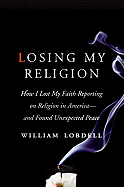Borders is closing its Chicago flagship store on Michigan Avenue next January. The 50,000-sq.-ft. store, which opened with great fanfare in 1995 and is more than twice as large as the average chain superstore, had "not met our profit objectives for some time," Steve Davis, senior v-p of Borders Group operations, said in a statement. There are an estimated 100 employees on the staff.
Davis called the Chicago area "one of our biggest markets" and said, "Borders has been a big part of Chicago for many years and that will not change with the decision to close this store." The company has 19 other stores in Chicago and its suburbs.
---
Last night Books & Books celebrated the move of its Miami Beach, Fla., branch from a storefront on Lincoln Road to "a new courtyard home" in the back of the Sterling Building, according to the Miami Herald. The store moved after 20 years because of higher rents; a Diesel Jeans store has opened in Books & Books's old space.
Although off the pedestrian mall, the new spot has major advantages, the paper noted: "Books & Books owner Mitchell Kaplan has reenergized his store with an elegant, light-filled new design, a sprawling outdoor newsstand and lounging area, an expanded cafe-restaurant and--mirabile dictu--four times the shelf space of the old."
The new store includes the Café at Books & Books, which has seating outside and features chef Bernie Matz's New South Florida cuisine as well as the Assouline Boutique Corner, founded by Martine and Prosper Assouline, which features illustrated books, luxury editions and a gift line dedicated to fashion, photography, art and design.
---
The Art Book Store recently opened at the William North Gallery in South Fort Myers, Fla. The Fort Myers Florida Weekly
noted that the store "offers new, used and rare art books at discount
prices. Inventory includes coffee table books, biographies, 'techniques
of the masters,' histories, theory and basic how-to instruction books."
---
As part of a range of cutbacks, the Metropolitan Museum of Art will close seven more of its shops around the country, according to the New York Times. In the past year, it has closed eight stores. The Museum will still operate eight stores and its online shop.
A veteran sales rep wrote: "One of the seldom acknowledged gold mines of art and history-related publishing has been the Met shops. Their long-time senior buyers will try anything that is rigorous enough and that relates to their extraordinary collection. Their second stage of cutbacks is potentially a huge loss to many of us."
---
Effective April 1, Paz & Associates will manage co-op for booksellers participating in the ABA E-Commerce Solution, according to Bookselling This Week. ABA E-Commerce staff who currently manage co-op will instead handle "core member benefits."
Besides offering consulting, bookseller training and education and other services, Paz & Associates through its newsletter marketing program has administered co-op for 12 years and currently handles co-op for 30 bookstores. In a statement, Paz & Associates partner Mark Kaufman said, "Offering a greater number of titles that will specifically appeal to independent booksellers and increasing the amount of co-op available for website and newsletter promotion are our primary goals. We are devoted to making it easier for booksellers to work with publishers and having increased ability to aggressively promote and sell books within their communities."
---
The next NAIBAhood Gathering for booksellers will be held Sunday, March 22, 3:30-6:30 at Watchung Booksellers, Montclair, N.J., owned by Margot Sage-EL. At the meeting, sponsored by the New Atlantic Independent Booksellers Association, topics will include local author support programs, stock selection, print and online newsletter, selection of non-book merchandise, merchandising ideas, store "personalities" and event ideas (and the pressure of hosting events).
Two Simon & Schuster authors, Alan Katz (Karate Pig) and Mary Elizabeth Williams (Gimme Shelter) will visit. Dinner follows. NAIBA members should RSVP to 516-333-0681 or readingent@aol.com.
---
Darcy Cohan has joined PoliPointPress, Sausalito, Calif., as director of marketing and publicity. She was formerly director of publicity and earlier managed the publicity departments at Avalon and Princeton University Press and headed her own publicity and marketing firm.



SHELFAWARENESS.1222.S1.BESTADSWEBINAR.gif)


SHELFAWARENESS.1222.T1.BESTADSWEBINAR.gif)
 At age 31, Lobdell, whose life to that point had been less than exemplary, became a born-again Christian. Determined to live his newly found beliefs, he started attending church regularly, began an intensive study of theology and soon concluded that his true calling was as a journalist writing about matters of faith. From a religion column in the Orange County edition of the Los Angeles Times he soon advanced to the main paper's religion beat. But as events unfolded, Lobdell's attainment of his dream job brings to mind the well-known admonition: Be careful what you wish (or in his case, pray) for.
At age 31, Lobdell, whose life to that point had been less than exemplary, became a born-again Christian. Determined to live his newly found beliefs, he started attending church regularly, began an intensive study of theology and soon concluded that his true calling was as a journalist writing about matters of faith. From a religion column in the Orange County edition of the Los Angeles Times he soon advanced to the main paper's religion beat. But as events unfolded, Lobdell's attainment of his dream job brings to mind the well-known admonition: Be careful what you wish (or in his case, pray) for.